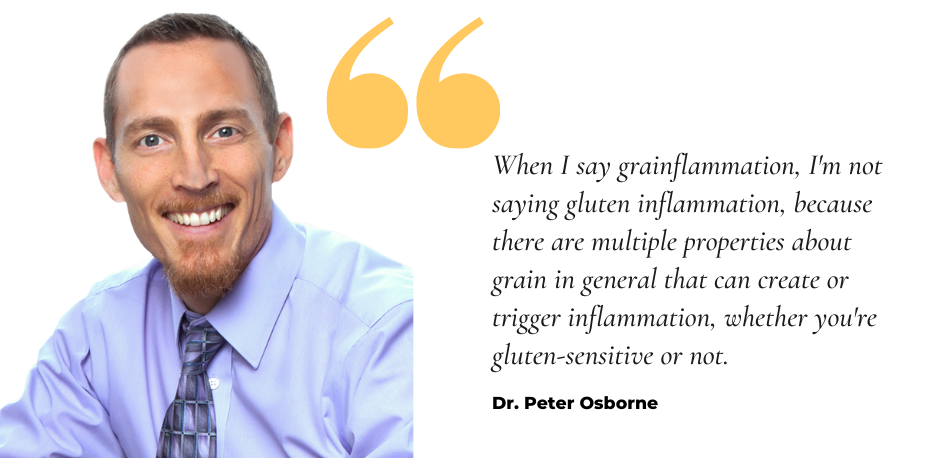Half of the American diet is composed of highly processed wheat and gluten-based food products, making it a major contributor to diseases that impact the brain and body.
Gluten impacts not only mental health, but is connected to the staggering and continual rise in autoimmune diseases, especially pain syndromes and gut inflammation.
But if going gluten-free is the answer, why do autoimmune diseases and mental health disorders continue to rise?
Is going gluten-free all it’s hyped up to be?
In this special two-part series, I’m speaking with two world-renowned experts who have dedicated their lives to educating the public about the impact of wheat, gluten, and other grains in our diets.
Over the next two episodes, you’ll learn how even so-called “gluten-free” grains such as corn and oats are still problematic, the problem with cross-contamination, how chemicals used in growing and storing grains impact your health, and so much more.
Listen to the full episode to hear:
- How mass-scale farming practices contribute to gluten sensitivity, inflammation and disease risk
- Gluten’s connection to autoimmune pain syndromes and the impact of pain management drugs on the gut and the body
- What gluten-free labeling in the US leaves out that can still make you sick
- How compounds in grains can actually mask their own damage by inhibiting pain response
- The many symptoms and disorders gluten is linked to that aren’t in your gut
Today, I’m speaking with Dr. Peter Osborne. Dr. Osborne is the clinical director of Origins Health Care in Sugar Land, Texas. He is a doctor of Chiropractic, a Doctor of Pastoral Science, and a Board Certified Clinical Nutritionist. He is the author of No Grain, No Pain and the founder of Gluten Free Society.
Dr. Osborne is one of the most sought-after alternative health and nutrition experts in the world. His practice is centered on helping those with painful chronic degenerative and autoimmune diseases using natural methods. He is one of the world’s leading authorities on gluten sensitivity, and lectures nationally on this and many other nutritionally related topics.








